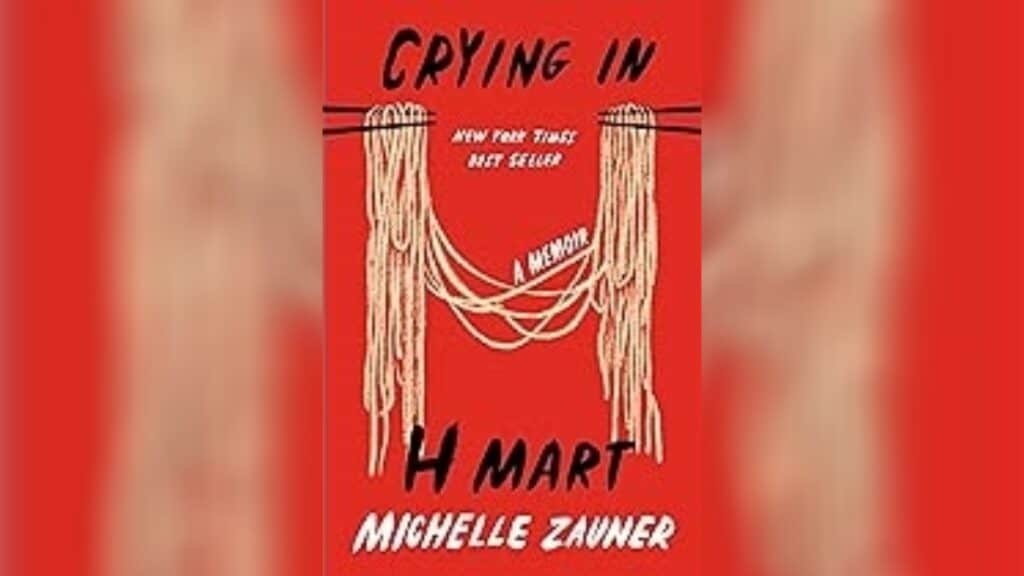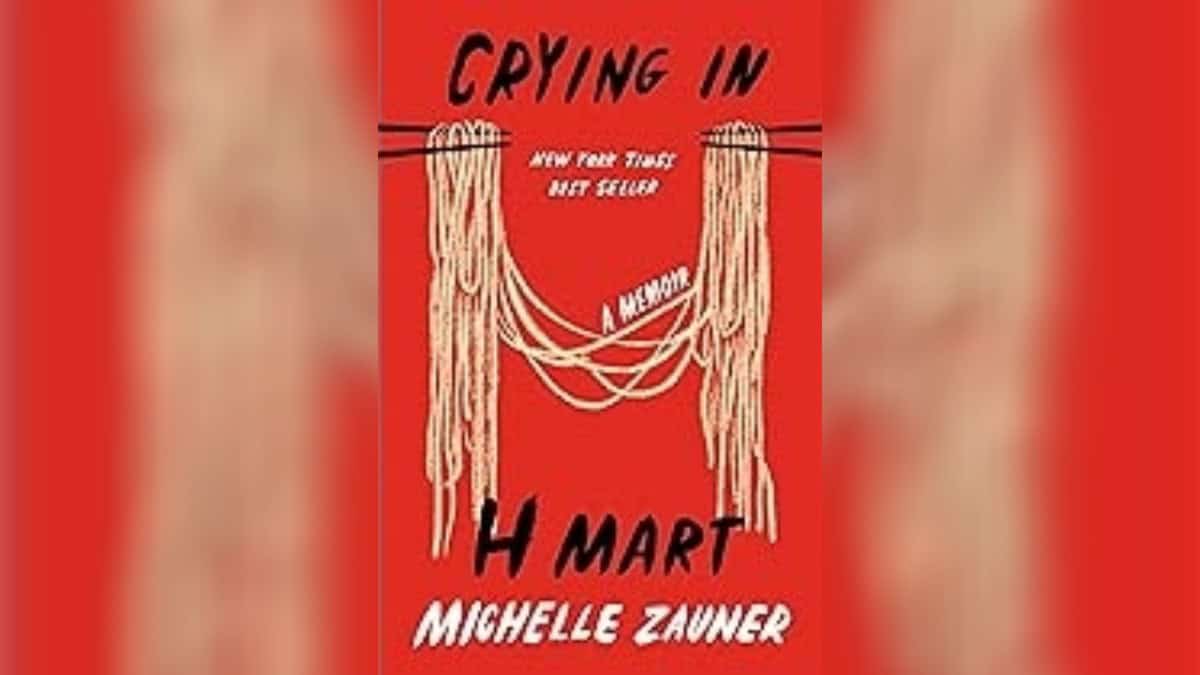Michelle Zauner’s memoir, Crying in H Mart, is a raw and poignant exploration of grief, identity, and the power of food in connecting us to our loved ones. Known as the lead singer of Japanese Breakfast, Zauner delves into her Korean-American heritage and the complex relationship she had with her mother, who passed away from cancer. Through her vivid storytelling, Zauner intertwines memories of her mother with the flavors and smells of Korean cuisine, creating a heartfelt narrative about loss, self-discovery, and the healing power of food. In this review, we will explore the key themes, emotional depth, and cultural significance of this impactful memoir.
A Journey Through Grief
Losing a Mother, Losing a Piece of Herself
At the heart of Crying in H Mart is Zauner’s intense grief over the death of her mother. The memoir courageously confronts the rawness of loss as Zauner describes her immense emotional pain with unwavering honesty. She reflects deeply on how losing her mother left her not only bereaved but also struggling with her sense of cultural identity. Her mother had been Zauner’s strongest connection to her Korean heritage in a multi-ethnic household. Without this critical family tie, Zauner felt adrift from an integral part of herself. This compound loss of her closest family member and a piece of her cultural roots further compounded Zauner’s profound grief, leaving her feeling unmoored.

Food as a Path to Healing
Zauner insightfully uses Korean food as a means to gently reconnect with treasured memories of her late mother, finding occasional moments of solace and comfort in familiar dishes they once shared together. H Mart, a popular Asian supermarket, poetically becomes a symbolic place of mourning for Zauner as she weeps in the aisles while hand selecting ingredients that lovingly remind her of cherished moments from childhood and her mother’s deep affection.
Through thoughtfully recreating her mother’s recipes and learning more about their cultural cuisine traditions, Zauner starts to slowly process some aspects of her enduring grief. This food-centered narrative provides readers with both an emotional anchor for the memoir as well as a sensory understanding of Zauner’s still-evolving grieving process and her gradual steps towards healing. Cooking and enjoying favorite foods of her mother’s delicately helps Zauner periodically feel close to her again during this inevitably difficult life chapter of immense personal loss.
The Complexity of Mother-Daughter Relationships
Tension and Love
Zauner’s relationship with her mother was filled with dynamic tensions characteristic of many mother-daughter bonds. In particular, her teenage years featured moments of conflict, misunderstandings and unspoken caring resulting from their differing backgrounds as well as her mother’s ambitious hopes. Zauner writes insightfully about how these dilemmas unfolded, thoughtfully acknowledging how their cultural gaps and her mother’s high standards often caused strained periods in their otherwise close connection.
Reconciliation in Retrospect
Despite navigating relational difficulties at times, Zauner reflects deeply on the unconditional love her mother consistently gave, especially shown through nourishment provided by homemade foods. With perspective of time and distance, she has grown to recognize how her mother’s acts of care and discipline formed her into the woman she is today, leading to a bittersweet reconciling of their bond after her mother’s passing. This theme of postponed reconciliation adds poignant complexity to the memoir, showing how a mother’s devotion can endure permanently even after death through reconciliation in her child’s heart.
- Uncovering the Truth Behind Best-Selling Memoirs: How Many Are Actually Fabricated?
- A Review of What Happened: Hillary Clinton’s Candid Reflection on the 2016 Election
- Review of « My Grandfather »: A Tribute to Family Legacy
- 2020 Book Tour Highlights: Must-See Authors and Literary Events
The Search for Cultural Identity
Korean-American Duality
Growing up with a Korean mother and white father in America, Zauner often experienced feeling removed from her Korean ancestry. Following her mother’s passing, she embarks on a journey to reclaim this integral part of her character, insightfully utilizing food as a cultural bridge. The memoir poetically illustrates how cuisine, language, and customs function as core parts of one’s ethnicity, and how the loss of a parent may sometimes consequently lead to a deeper exploration of those origins.
Navigating Questions of Belonging
Zauner vulnerably shares her experiences with sometimes not fully feeling a sense of belonging within either Korean or American societies exclusively. She acknowledges how her mother’s guidance while navigating these worlds previously helped her identify a space in which she felt accepted. Within Crying in H Mart, the act of cooking traditional Korean dishes becomes a means for Zauner to honor her heritage and sustain her mother’s memory alive, while also defining her own ethnically hybrid identity on her own terms.
Writing as Catharsis
A Voice of Vulnerability and Strength
Zauner’s writing reflects an ability to courageously lay bare immense inner vulnerability while maintaining an understated strength of spirit. Her memoir precisely captures fleeting yet poignant particulars of her mother’s life and their bonded relationship, enabling readers to palpably feel the weightiness of her loss. The memoir reads akin to a personal letter dedicated to her mother, brimming with unsaid sentiments and desires for one additional moment together.
Universal Themes of Loss and Healing
While profoundly intimate, Zauner’s chronicle resonates universally with anyone having navigated loss. She taps into common shared experiences of grief, rendering Crying in H Mart not only a tribute honoring her mother but also a steadying guide for readers seeking to heal their own wounds of loss. Her narrative offers reassurance that, even amid deepest sorrow, we retain abilities to respectfully commemorate loved ones and cultivate renewed understanding of ourselves.
- Uncovering the Truth Behind Best-Selling Memoirs: How Many Are Actually Fabricated?
- A Review of What Happened: Hillary Clinton’s Candid Reflection on the 2016 Election
- Review of « My Grandfather »: A Tribute to Family Legacy
- 2020 Book Tour Highlights: Must-See Authors and Literary Events
Conclusion: A Memoir Illuminating Love, Loss, and Self-Awareness
Michelle Zauner’s Crying in H Mart succeeds as an emotive memoir weaving together themes of mourning, character, and nourishment’s capacity for healing. Through her candid chronicle and sensorial descriptions, Zauner brings her late mother and their special bond compellingly to life. The narrative functions not only as a dedication to her mother but also as an astute exploration into defining one’s identity amid loss.
For readers wishing to further examine foodways’ cultural importance and questions of ethnicity, we recommend « Minor Feelings » by Cathy Park Hong and « Eat a Peach » by David Chang, immersing similarly into the Asian-American experience and cuisine’s influential role in shaping character.
If seeking a memoir embracing the nuances of family, roots, and bereavement, « Crying in H Mart » stands as a must-read. Submerge within this heartfelt narrative, reminded how bonds of love, memories, and heritage sculpt who we become. Zauner’s story resonates profoundly, now and for years to come, for all navigating their way through life’s sweetest & sourest seasons.
































Add comment